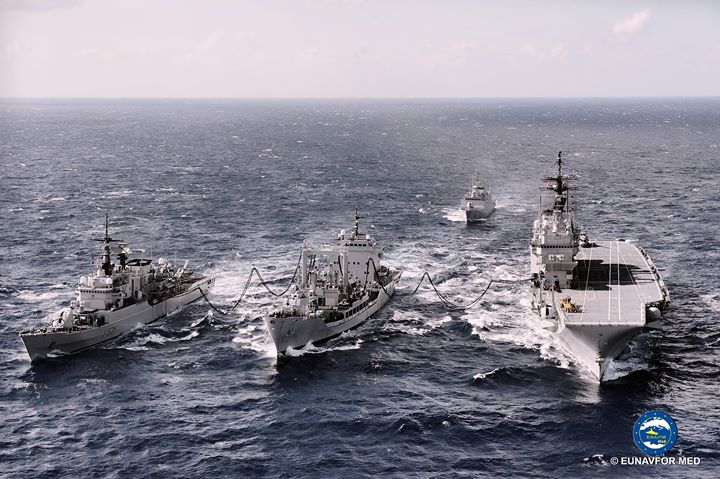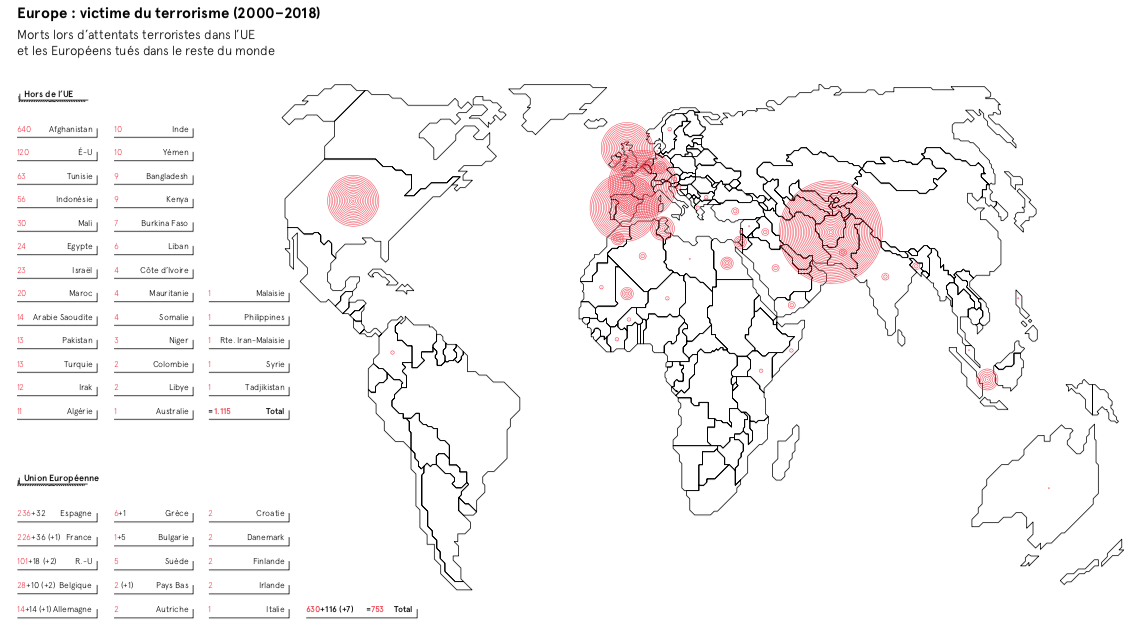Sea Guardian: a limited-scale operation – exclusive

(B2) The new NATO operation in the Mediterranean (Sea Guardian), even if it has been officially announced and launched, is far from having reached its full capacity, according to our information. And its effectiveness is, for the moment, quite theoretical
A flashing operation
In fact, it is, for the moment, more of a support activity, which works intermittently. The contribution of countries should be dependent on ships passing through the area, which will then provide assistance, if necessary. The operation would thus only be active for two weeks out of two months, during the first period.
- NB: this lowering of the ambition of the operation would be partly due - according to certain sources in the Alliance - to the desire not to anger Russia by an excessively strong presence of the Alliance in the Mediterranean, vis-à-vis certain countries (Syria, Egypt, Libya) considered sensitive for Russian forces.
Pool supply needs
The operation Sea Guardian will, however, make it possible to pool needs. Thus, when a supply vessel passes through the Mediterranean, whatever its nationality, it will be able to supply both European operation vessels and NATO vessels active in the Aegean Sea, or other vessels present in the area. A bit like what was happening in the Indian Ocean, for anti-piracy operations, where the passing tanker supplied all the Allied ships of the three operations then present (CTF 151, Ocean Shield, EUNAVFOR). A supply ship is quite rare in the navies, and making it available for a single operation (NATO or EU) is costly in terms of capabilities and financially.
A framework for the exchange of information
Above all, the operation will provide a framework for surveillance and the exchange of information – in one direction or the other – allowing better monitoring of certain trafficking (in arms, migrants or other, etc.). This will in particular allow the "Europeans" to benefit from certain information collected by the American ships (at least those which they will be willing to exchange).
The lesson: NATO follows the EU
The implementation of this operation is interesting from a political point of view. In the 2000s, the European Union sometimes took over from NATO in smaller-scale operations, mainly on land in the Balkans, or supplemented the action of the Alliance on a civilian level (Afghanistan).
Today, mainly in maritime operations, whether for the fight against piracy in the Indian Ocean (Atalanta/Ocean Shield) or the fight against trafficking in the Mediterranean (Sophia/Sea Guardian), it is around the European Union that the hard core of the operation is created (with the maximum of means). And NATO makes a rather minimal specialized contribution. The same is true for military training missions, particularly in Africa, where the EU has acquired know-how and autonomy of action that NATO cannot achieve because it does not have the panoply European tools.
Equal sharing of tasks
We have thus entered into a logic of sharing missions/operations with variable geometry, which is ultimately quite egalitarian. The organization that has the "lead"is the one who is the most qualified in the function, both technically and politically. Even for armed police or military cooperation tasks, it is no longer automatically the Atlantic Alliance that appears to be the most equipped. This famous assumption by Europe of its security responsibilities - so much demanded by political leaders and across the Atlantic - is, of course, still limited, but this development reveals a growing awareness and assumption of responsibility.
(Nicolas Gros-Verheyde)
Read also: Exit Active Endeavour. NATO sets up Sea Guardian in the Mediterranean. Hiatus in the Aegean Sea*


